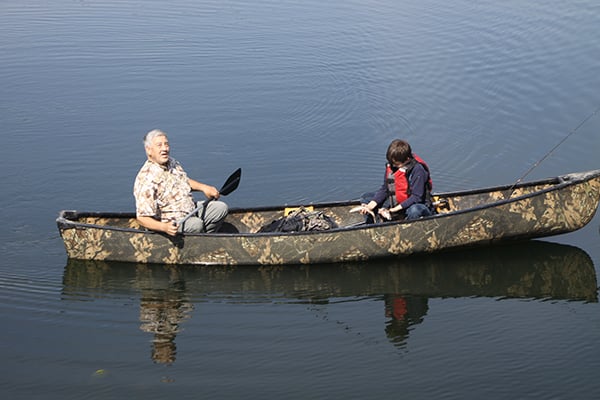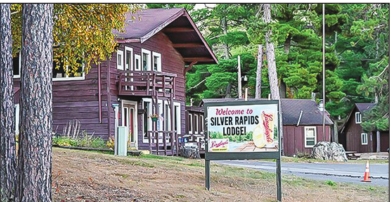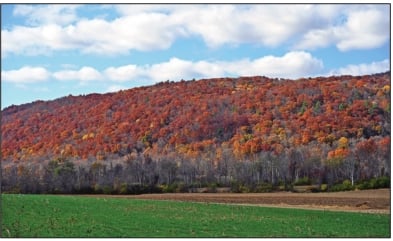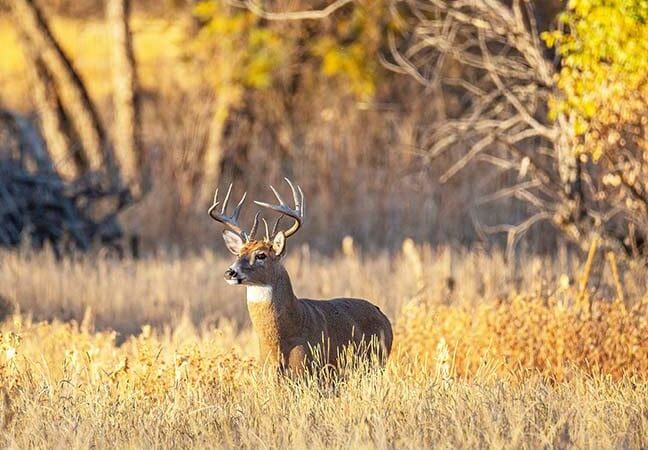Minnesota Mixed Bag: Winter catch-and-release trout-fishing opportunities available in southeast – Outdoor News
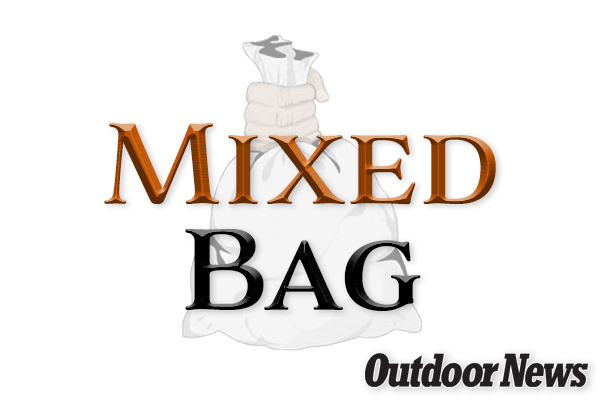
St. Paul — Winter trout fishing is another way to enjoy the outdoors along streams that meander through the scenic bluffs and hills of southeastern Minnesota.
Catch and release-only trout fishing kicked off on Monday, Jan. 1, and runs through Sunday, April 14, at all designated trout streams in Dodge, Fillmore, Goodhue, Houston, Mower, Olmsted, Wabasha, and Winona counties. There are additional catch-and-release fishing opportunities all winter in Beaver Creek Valley, Forestville, and Whitewater state parks, as well as in the city limits of Chatfield, Lanesboro, Preston, Rushford, and Spring Valley.
Southeastern Minnesota trout-fishing information is available on the Minnesota DNR website, and fishing maps are available on the Lanesboro area fisheries webpage.
GOAL OF NEW LITTER LAW: KEEP STATE’S LAKES, RIVERS CLEAN
St. Paul — Every winter, hundreds of thousands of anglers head for the frozen water to fish. Most ice anglers clean up after themselves, but some don’t – and it’s their behavior that was the impetus for a new litter-on-ice law the Minnesota Legislature passed in 2023.
Ice conditions so far this season have been highly variable and safety has to be anglers’ top priority. As anglers venture out, the DNR reminds them that the new law requires people to secure their trash in a container such as a bucket, garbage bag, or trash bin, and makes clear that depositing sewage – whether from animals or humans – on the ice is prohibited.
RELATED COVERAGE FROM OUTDOOR NEWS:
The latter, particularly as it relates to human waste, has been an increasing problem in recent years, with some owners of deluxe fish houses (also known as wheelhouses) dumping their holding tanks on the ice before heading for shore.
The new law makes it easier for conservation officers and other law enforcement personnel to take enforcement action against people who leave trash and waste on the ice.
“Most anglers leave nothing more than an impression on the ice, and many of them actually take the time to clean up after others because they know trash and waste left on the ice is an eyesore and environmental and human health concern,” said Col. Rodmen Smith, director of the DNR Enforcement Division. “We certainly appreciate that mindset, but the reality is we expect all anglers to bring off the ice whatever they brought on. This law will help all of us ensure that happens.”
U.S. EPA SEEKS COMMENT ON BALLAST DISCHARGES
Washington — The U.S. Environmental Protection Agency is issuing a supplemental proposed rule to reduce the spread of invasive species that occurs with normal operation of large marine vessels. Following public input on the EPA’s 2020 proposed rule, the agency is now issuing a Supplemental Notice to share new data and control options raised by stakeholders. This supplemental proposal is meant to bolster the development of a final rule to stem the spread of invasive species and better protect our nation’s aquatic ecosystems.
The EPA’s proposed Vessel Incidental Discharge National Standards of Performance is intended to reduce the environmental impact of discharges, such as ballast water, that are incidental to the normal operation of commercial vessels.
This supplemental notice shares new ballast water information from the U.S. Coast Guard and additional regulatory options EPA is considering for the final rule for ballast tanks, hulls and associated niche areas, and graywater systems. The agency is requesting comments on the issues identified in the supplemental notice during a 60-day public comment period. The public does not need to resubmit comments from the 2020 proposed rule, as the final rule will address comments received on both the proposed rule and the supplemental notice.
For more information on submitting comments on the proposal and upcoming virtual public meetings, see EPA’s Commercial Vessel Discharge Standards website.
HUNTING SEASONS SET TO CLOSE IN IOWA
Des Moines, Iowa — Hunting seasons will begin closing soon in early January. Pheasant, archery turkey and deer seasons, and late muzzleloader deer seasons close Jan. 10. Goose seasons start closing first in the north zone Jan. 13, followed by the central zone Jan. 20, and the south zone Jan. 27.
The season for quail, partridge, ruffed grouse, and squirrels closes Jan. 31. Rabbit season closes Feb. 28.
The furbearer hunting and trapping seasons also close Feb. 28. Fur harvesters may continue trapping beavers until April 15.
Iowa hunters have reported harvesting 96,000 deer so far during the 2023 season.
FISH HOUSES LEFT ON N.D. ICE MUST FLOAT
Bismarck, N.D. — The North Dakota Game and Fish Department reminds anglers that any fish house left unoccupied on North Dakota waters must be made of materials that allow it to float. In addition, fish houses do not require licenses.
Other fish house regulations include: Occupied structures do not require identification; fish houses may not be placed closer than 50 feet in any direction to another house without consent of the occupant of the other fish house; and all unoccupied fish houses must be removed from all waters by March 15.
Anglers should refer to the North Dakota 2022-24 Fishing Guide for other winter fishing regulations.


